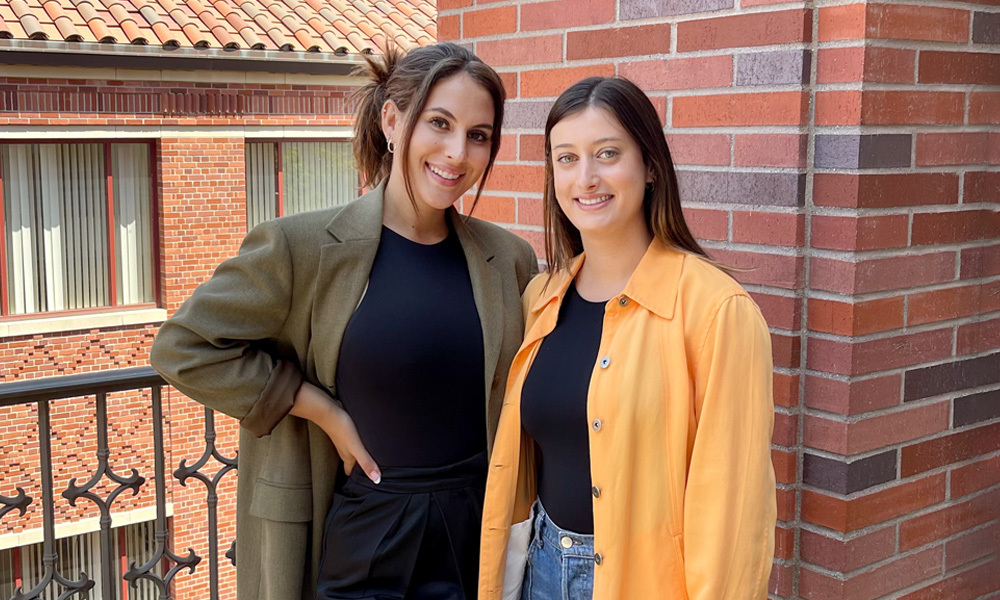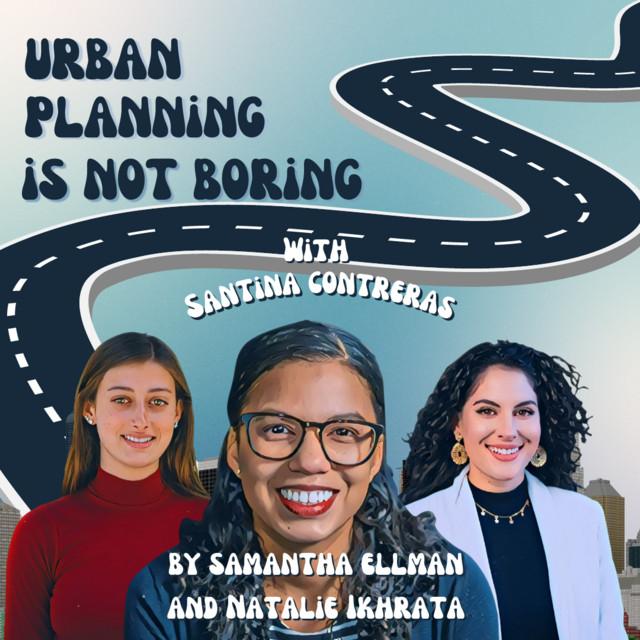
Samantha Ellman and Natalie Ikhrata are fascinated by urban planning, but even they understand why others don’t exactly share their enthusiasm.
“A planning commission meeting can definitely be boring,” said Ellman, a student at the USC Sol Price School of Public Policy. “There are zoning documents and all of this paperwork. The processes take forever.”
Yet the impact of urban planning is anything but dull, affecting everything from climate change to traffic jams. Ellman and Ikhrata, who are both pursuing Masters of Urban Planning degrees at the USC Price School, wanted to make urban planning – and its potential to make cities more just, livable and sustainable – easy to understand. So they created a podcast, called “Urban Planning Is Not Boring.”
To get that message across, the podcast connects urban planning to timely news events and society’s challenges. Over the course of 30 episodes, Ellman and Ikhrata have discussed topics ranging from natural hazards to affordable housing. The hosts often invite expert guests, including USC Price School faculty, giving listeners free, accessible insights into urban planning.
“We were looking for a space to get people to understand just how important urban planning is, because it impacts every aspect of your lived experience within the built environment,” Ikhrata said. “The reason why you’re sitting in traffic for two hours a day, or why bus routes are not as accessible or why housing is so expensive – these are not boring topics.”
Their growing audience seems to agree. The podcast has garnered 1,000 followers across audio platforms like Spotify and Apple Podcasts. That includes listeners in Canada, Australia, India, Hong Kong and Sweden.
As Ellman and Ikhrata prepare to graduate in May, their podcast is reaching the next generation of Trojans, too. A number of newly admitted students said they listened to the podcast, said Santina Contreras, assistant professor at the USC Price School. Contreras, a recent guest on the podcast, noted that the podcast is doing a great job of highlighting the ways that planning tools can be used to tackle big picture problems.

“They’re asking the right questions, and I think a lot of it stems from their curiosity and their interests,” Contreras said. “I think it’s also a good way of making an impact on the field, so that’s why I’m a big fan of it.”
The podcast has also featured USC Price School associate professor Annette Kim, who described alternative approaches to mapping urban environments including the vibrant sidewalk life in Ho Chi Minh City. Ben Feingold, an adjunct professor who teaches real estate and finance to non-real estate students, was also a guest and explained the financial analyses behind different types of development projects.
A couple of the hosts’ favorite episodes dealt with L.A.’s notorious freeways. They recounted the history of governments bulldozing urban areas for freeways, and explained how more freeway lanes only invites more traffic, anyway.
“We talked about this whole phenomenon of freeway expansion and how that won’t necessarily ever fix traffic congestion,” Ellman said. “We’re really excited that people have taken to the podcast, and we feel we are starting to accomplish the goal of making urban planning more accessible.”
The podcast hosts took non-linear paths to urban planning.
Ikhrata, who grew up in Rancho Cucamonga, California, initially studied biochemistry at the University of California, Riverside. Her deep concern about homelessness in the state – which has an oversized share of the nation’s unhoused population – helped her discover her passion for public policy and she switched majors. Now, she’s weeks away from earning a master’s with a concentration in Housing and Real Estate Development.
Ellman is from the San Francisco Bay Area and studied environmental science at the University of California, Santa Barbara. She wanted to pursue a career that tackled climate change but wasn’t sure where to focus. Having enjoyed a planning class she took when studying abroad in Singapore, she enrolled in the USC Price School. Her master’s concentration is Planning for Climate Change and Sustainability.
“Sam and Nat” (as they call themselves on the podcast) will go their separate ways following commencement on May 12. Ikhrata plans to work in housing development in Los Angeles, and Ellman will be moving back to the Bay Area for a job at transportation consultancy Fehr & Peers.
“I typically see Sam about two to three times a week. It will go to zero,” Ikhrata said. “I’m really sad about that and I’ll miss her, but we have technology like this for a reason.”
Technology, particularly Zoom video calls, will not only allow the two Trojans to stay in touch. They plan to continue the podcast post-graduation to convince more people that urban planning is anything but boring.